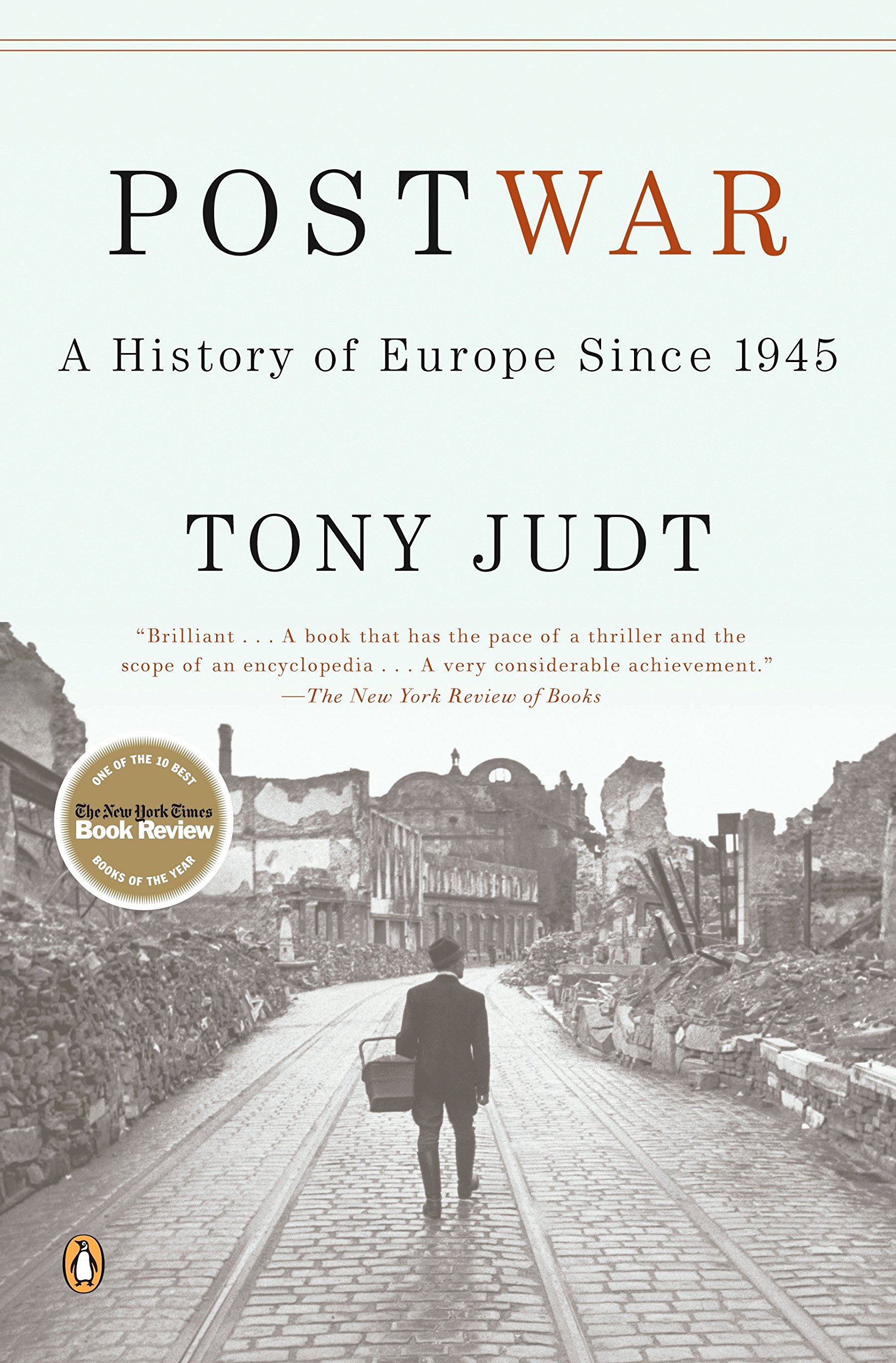Postwar
Postwar is not a book so much as it is a college course on 20th century Europe. Judt makes it clear in his introduction that rather than try and propose a grand theory or specific thesis with which to plumb the six decades following World War II, he wrote the book in an exercise of gestalt:
I have no big theory of contemporary European history to propose in these pages; no one overarching theme to expound; no single, all-embracing story to tell. It does not follow from this, however, that I think the post-World War Two history of Europe has no thematic shape. On the contrary: it has more than one. Fox-like, Europe knows many things.
As such, this book is a tome. You will — I did — learn a lot about the world, especially coming from a meager historical background. There were lots of revealing areas, and I am forgetting most of them:
- The general richness and inner life of Eastern Europe, which I had largely marginalized and treated as same-y in the Postwar scene - The continued vilification of Jews and minorities in the immediate Postwar scene, with the plight of the Holocaust not being magically ended with the conquering of Berlin - The role and cleverness of West Germany in maintaining their frame on the world stage, first through ostpolitik and later through diplomacy in the EU - The detente and casual comfort with which most of Western Europe treated the USSR (as contrasted with the open conflict that the US felt) - The cylicality of eras of social boom and disruption and change
I have no reservations recommending someone read this book: few histories have taught me more. And yet, it fails in many ways as a book: by optimizing for breadth, Judt has deliberately written a transcription rather than a narrative. I listened to this thing for 44 hours: I spent two of those hours on Lithuanian politics that my brain is not yet seasoned enough to place into the rich context it deserves, and the sheer density of events and figures makes it difficult to grasp the enormity of some of the submovements he espouses.
I will probably reread (or relisten) to this again in ten years, and I'll be happy to do so. It can be a slog, but it is rewarding.
